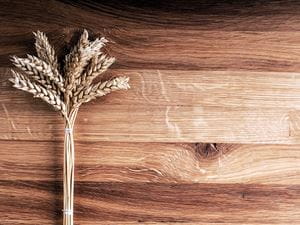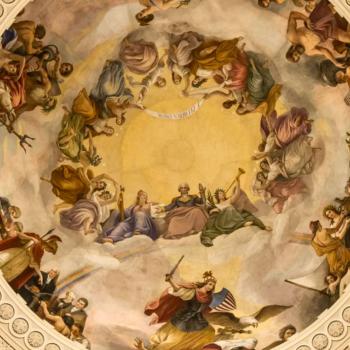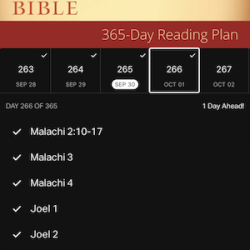
The Jewish holiday of Shavuot (or “weeks”) is celebrated on the 6th day of the Hebrew month of Sivan, and usually falls during the month of May or early June. Like other biblical Jewish holidays, with the notable exception of Rosh Hashanah (or Jewish New Year), Shavuot is celebrated for one day in Israel and two days in other countries. On Shavuot, observant Jews are bound by the same restrictions on behavior that accompany other major biblical Jewish holidays, including the prohibition on spending money, using electricity, and conducting business.
In the Bible (Exodus 23:16, Numbers 28:26), the holiday of Shavuot is described as a harvest holiday, coinciding with the season for reaping barley. It is one of three holidays mentioned in the Bible, along with Passover and Sukkot, which required a pilgrimage to the Temple in Jerusalem. The association with harvest comes up in several aspects of its celebration. For example, the Book of Ruth is read during the holiday of Shavuot, as the story of Ruth takes place during the barley season.
Over time, the holiday of Shavuot evolved from a harvest celebration, as described in the Bible, to a holiday marking the day that the Torah was given to Moses on Mount Sinai. The rabbis of the Talmud declared that the day of the 6th of Sivan was the day that the Torah was given to the Jews. Today, the agricultural roots of the holiday are much less central in Jewish celebration than commemorating the giving of the Torah. After the 16th century, a custom developed to stay awake the entire night of Shavuot studying Torah, in a tradition known as Tikkun Leil Shavuot. While the origins of this custom are rooted in mystical understandings of the relationship between divine and human actions, the practice of staying up all night is now common across Jewish communities. (Because some believe Shavuot to be the birthday of King David, there are those who will stay up and read the Psalms instead—many of which are attributed to King David.) Synagogues, Jewish schools, and Jewish community centers will often organize lectures and events that last until dawn. One reason for this tradition that is given is that, in the telling in Exodus, the ancient Israelites approached Mount Sinai to receive the Torah when the presence of God was already on the mountain. In later rabbinic readings, this is read as a lapse on the part of the Israelites, who should have been so eager to receive the Torah that they beat God to the mountain, as it were. In order to rectify this ancient error, Jews today attempt to stay up all night learning Torah, to demonstrate their eagerness and to not be late for God, as it were, on the day on which the Torah had been given.
There is also the tradition to eat dairy foods on Shavuot, instead of traditional meat dishes usually served on holidays. For Jewish communities that keep kosher(i.e., a series of dietary restrictions which makes it forbidden to eat dairy alongside meat), this represents a rare opportunity to serve dairy dishes and desserts in a festive setting. Several reasons are given for the tradition of eating dairy, though none are definitive and, in many communities, this has spurred a tradition of serving cheesecake at Shavuot celebrations.
The holiday is commemorated in the synagogue with the recitation of Hallel, the special liturgy of praise recited on joyous holidays, and with special Biblical readings.
The name Shavuot literally means ‘weeks’ in Hebrew, and the holiday is celebrated exactly seven weeks after the second night of Passover. The forty-nine days of these seven weeks are ritually counted, in a process known as ‘counting the Omer,’ and it is this ritual of counting the weeks between Passover and Shavuot which lends the holiday its name. For many Jews, the link between Passover and Shavuot emphasizes the theological narrative that while the Jews were freed from Egypt on Passover, the story is not over until they were brought into the covenant of God on Shavuot, with the giving of the Torah.
To learn more about Jewish beliefs, holidays, rituals and more click here.
3/10/2023 5:23:41 PM










